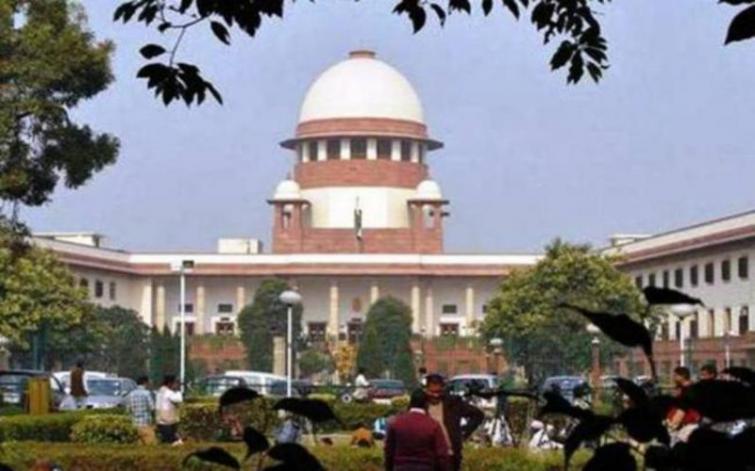
New Delhi, Apr 16 (IBNS): In a major development, the Supreme Court on Tuesday said it has decided to hear a plea filed by a Muslim couple who are seeking a direction from the top court to allow women to enter mosques to offer their prayers.
Muslim couple Yasmin Zuber Ahmad Peerzade and Zuber Ahmad Nazir Ahmad Peerzade have filed the petition in the case.
They have said that there are no records which stated that women were not allowed to enter mosques and offer prayers by the Holy Quran and Prophet Muhammad.
Interestingly, the court said it has decided to hear the plea as Sabarimala verdict was quoted in the PIL.
A bench, headed by Justice S A Bobde, issued notice to the Centre, All India Muslim Personal Law Board (AIPMLB) and other respondents after hearing the petition filed by the couple.
The bench said, "We will examine the issue in view of the apex court's earlier order on Sabarimala temple judgement."
The petition, filed under Article 32, quoted from the Sabarimala judgment saying, “religion cannot be used as cover to deny rights or worship to women and a prohibition on women to offer prayers is against human dignity", reported Hindustan Times.
“Prohibition on women is due to non-religious reasons and it’s a grim shadow of discrimination going on for centuries,” the petition reads further, as reported by the newspaper.
The petitioners claimed that disallowing women into mosques is violation of their fundamental right to equality.
They further stated that the SC should hear the matter and pass appropriate directions to parties, so that their fundamental rights are restored.
The top court, while hearing the PIL, on Tuesday said they were not satisfied by the response given by petitioner’s counsel to a query on whether an individual can assert his or her right to equality against another individual.
“Can you invoke Article 14 and claim equality of treatment from another citizen. Can it be invoked against non-state actors? We can understand that state has to ensure equality. State cannot deny it,” the Court observed as reported by The Hindustan Times.
Sabarimala incident:
On Sept 28, a five-judge bench of the Supreme Court had lifted the ban on women's entry into the Sabarimala temple declaring the relevant rules as unconstitutional.
Following the top court's verdict, the shrine opened on Oct 18 for the first time allowing menstruating women, belonging to the age group of 10 to 50, to enter the temple.
However, several men and women had protested outside the temple, and tried to prevent the entry of women in the shrine.
For centuries, menstruating women had been banned from entering the temple dedicated to Lord Ayyappa.
Two women created history:
Two women, Bindu and Kanakadurga, had created history by entering the temple since the top court gave its verdict on the entry of women in the shrine.
Video footage of the incident, where two women could be seen entering the temple, had gone viral on social media.
The incident had also triggered violent protests in the southern state.
The Haji Ali case:
The scene of women entering the sanctum sanctorum area of the Haji Ali Dargah is a common sight these days. However, the entire development dates back to a Supreme Court verdict few years back when activists filed a PIL and the matter went to the apex court for hearing.
In October 2016, following the hearing, the trust ceded and allowed women in the sanctum area.
Support Our Journalism
We cannot do without you.. your contribution supports unbiased journalism
IBNS is not driven by any ism- not wokeism, not racism, not skewed secularism, not hyper right-wing or left liberal ideals, nor by any hardline religious beliefs or hyper nationalism. We want to serve you good old objective news, as they are. We do not judge or preach. We let people decide for themselves. We only try to present factual and well-sourced news.







